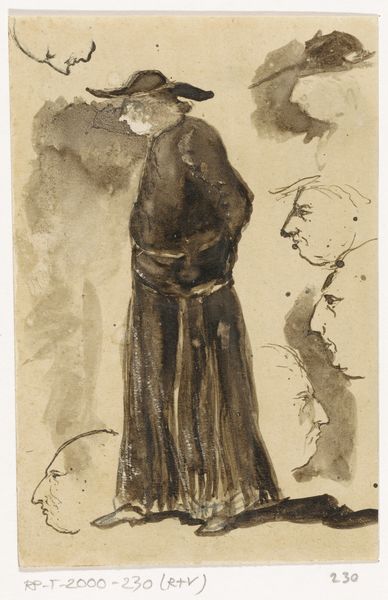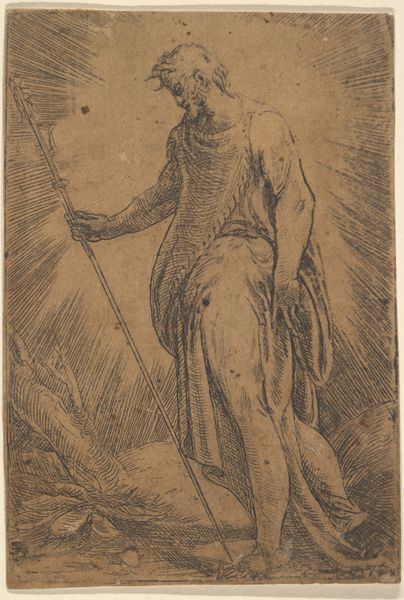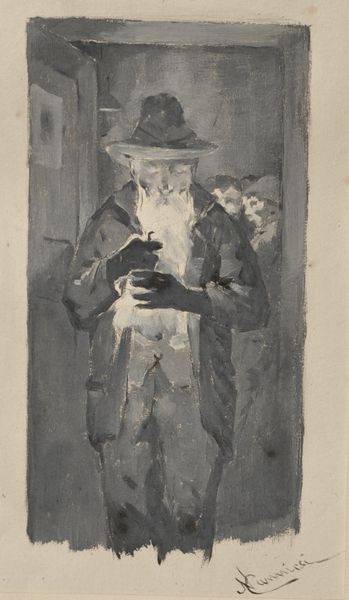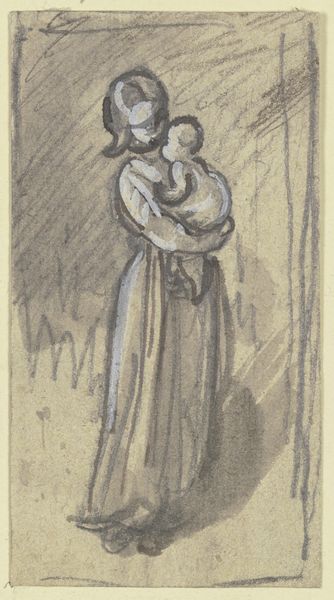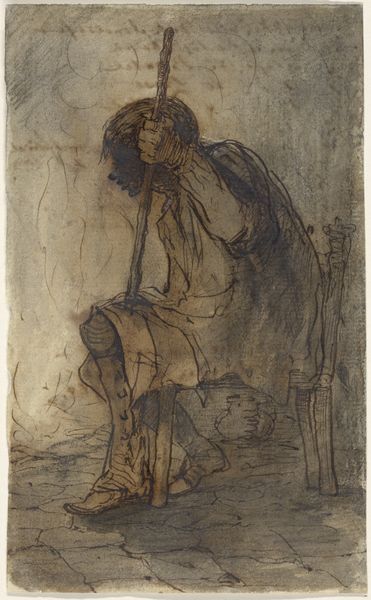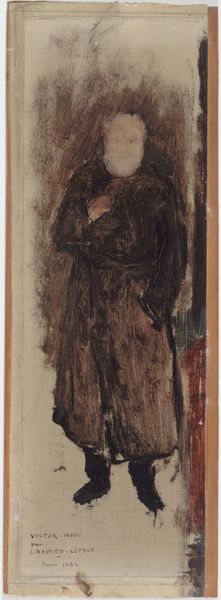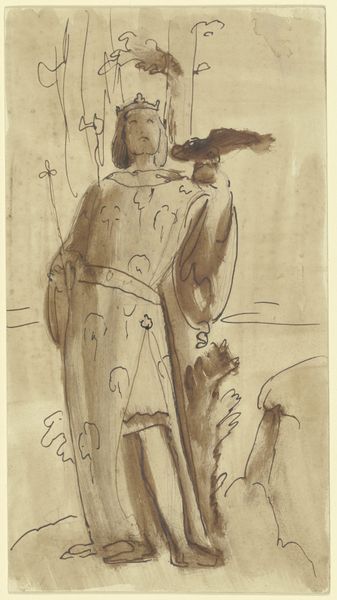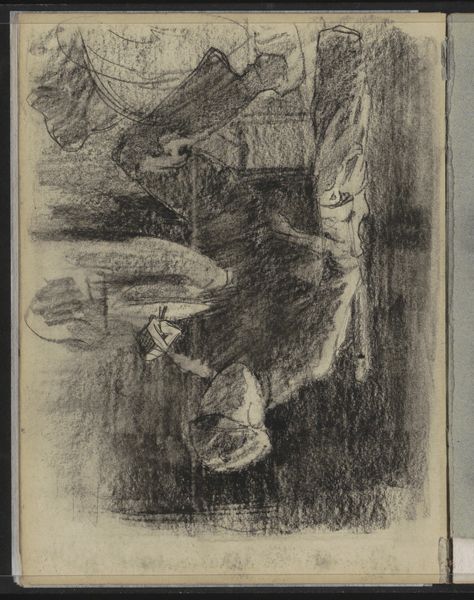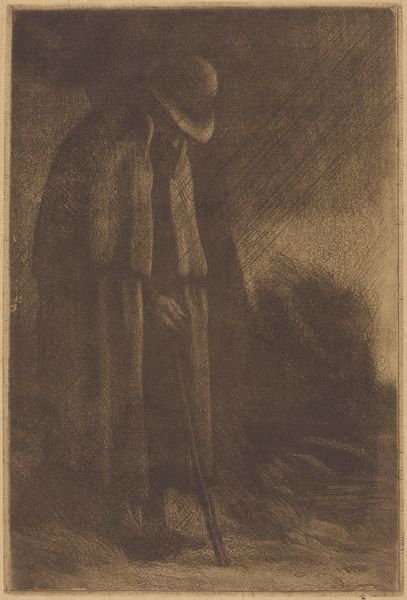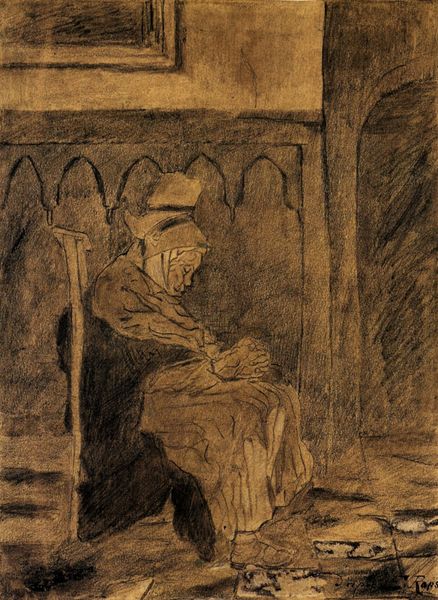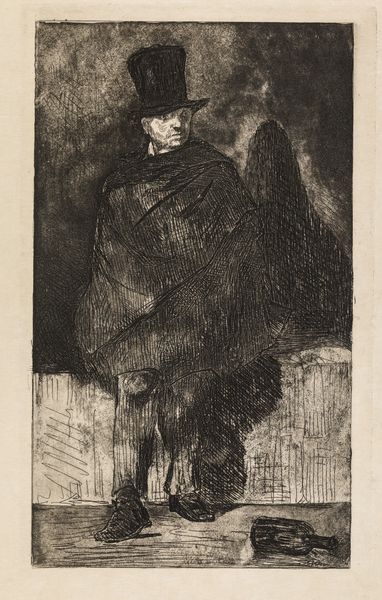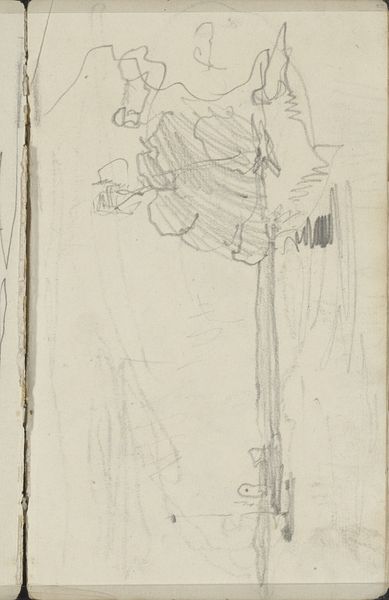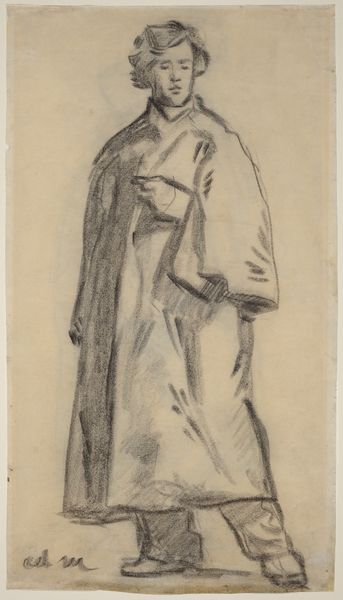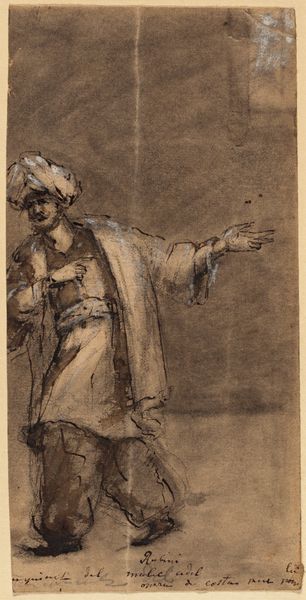
drawing, charcoal, pastel
#
drawing
#
narrative-art
#
charcoal drawing
#
figuration
#
coloured pencil
#
symbolism
#
charcoal
#
pastel
Copyright: Public domain
Curator: Nikolaos Gyzis created this pastel and charcoal drawing titled "The Glory of Psara" in 1898. The ghostly figure seems to be emerging from darkness into a pale light. Editor: There’s something really arresting about the materiality here—the rawness of the charcoal juxtaposed with delicate pastels. The layering gives it such texture, especially that light that appears like fabric. Curator: Gyzis created this work as part of a larger project commemorating the Greek War of Independence, particularly the destruction of Psara by the Ottomans. We need to see it as a deeply political and mournful work. Editor: Absolutely. The materials become part of the narrative, don’t they? The charcoal becomes the devastation, the smoky remains of what was. And that light—is it hope, remembrance, divine intervention? Curator: The figure itself is allegorical. I think the ethereal quality evokes collective memory, a spectral representation of Psara rising from the ashes of history, holding a writing tablet to remember and perhaps rewrite its history. The very act of remembrance, made tangible. Editor: It strikes me that Gyzis chose to foreground process and materiality so strikingly at this moment in the late 19th century. It seems to challenge conventional painting practices, almost collapsing "high art" with the supposed crudeness or banality of drawing. It suggests that labor—commemoration itself—is also part of the ‘glory.’ Curator: Indeed, looking through an intersectional lens, the act of remembering and retelling is a radical assertion of agency in the face of erasure. Who controls the narrative? Who is remembered? These are the crucial questions it raises. Editor: The drawing's texture becomes like palimpsest. Erasure and re-emergence as an ongoing and intensely laborious task. Curator: Reflecting on it, Gyzis reminds us that ‘glory’ isn’t a triumphant fanfare, but something forged in the crucible of suffering, remembered through communal effort, and always contested. Editor: And materially anchored. Labor, land, even ash. Thanks for offering such critical perspectives. It alters my perception greatly.
Comments
No comments
Be the first to comment and join the conversation on the ultimate creative platform.
